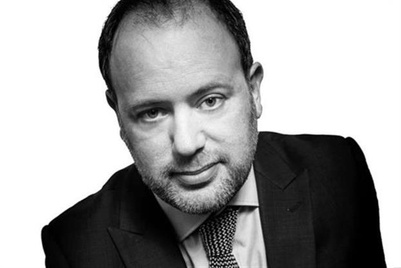
The South Korean electronics firm has fallen on hard times.
Last month LG Mobile sacked its chief executive, Nam Yong, for missing the smartphone craze. LG now has a mere 1.5 per cent of the global smartphone market. It is struggling even on its home turf.
LG entered the market late, with a so-so model called the Optimus. It’s share of global mobile-phone sales has fallen from 10.7 per cent last year to nine per cent, according to Gartner. The average price of its handsets fell by 27.8 per cent, pushing its mobile division into losses of US$103 million in the second quarter.
Much is now riding on the soon-to-be-launched Optimus One, but it faces an uphill battle, even in the home market, which is dominated by Apple and Samsung. Besides the established rivals, LG faces a challenge from HTC, a fast-growing Taiwanese firm.
Brand health diagnosis
Dave McCaughan, regional strategic planning director, McCann Worldgroup:
The smartphone war is over, right? No it’s just starting.
The simple facts are the number of people getting personal phones is still growing dramatically. The vast majority of phone owners do not yet have a smartphone. No doubt if offered at the right price most would take one. But there is the rub: getting a phone that does “make me smarter” (read: connected on new levels) but at price points that different potential consumers can justify to themselves.
And justification comes in being able to say you chose a product based on personal needs and style.
Which means that LG is still in with a chance - if it can talk to specific choices.
LG was successful with style-based phones like Chocolate that created a specialness beyond the technology it offered. Catering to people’s desire for something different and unique was the LG forte.
Optus One or other offerings may not create a new phone revolution, but if LG can offer some uniqueness of style and personalisation, it will appeal to people who think they know what they want.
And that is something different from the premium front-runner in the smartphone race. The trick will be to create an image that says ‘different’ while delivering comparable features.
Firstly, LG has done a phenomenal job over the past few years. It used to be called Lucky Goldstar (with a reputation that was far from premium), and it has transformed itself into the world’s third largest handset manufacturer and can claim mid-tier premium prices.
Apple has thrown a nuclear bomb into the mobile landscape with the iPhone and even Nokia is crumbling with the seismic shifts.
The challenge for LG is how it will evolve in this new world. Will it innovate with a revolutionary hero product, or will it go mass with a me-too product? The Optimus series of phones (in both Android and Windows Mobile 7 flavours) implies it will continue going down the mass path, with a focus on value.
There doesn’t seem to be anything that lets it stand out from the products of other manufacturers using the same platform. HTC, for example, at least customise the user interface to provide tangible differences. This will make it difficult to stand out in an increasingly cluttered smartphone market.
Albert Einstein once said “insanity is doing the same thing over and over again and expecting different results”. It’s still early days, but despite a change in CEOs, it seems LG are following the same strategy they always have. Time will tell if the results will be different.
This article was originally published in the November issue of Campaign Asia-Pacific.


+(900+x+600+px)+(3).png&h=334&w=500&q=100&v=20250320&c=1)
+(900+x+600+px).jpg&h=334&w=500&q=100&v=20250320&c=1)
.jpg&h=334&w=500&q=100&v=20250320&c=1)


.jpg&h=334&w=500&q=100&v=20250320&c=1)
+(900+x+600+px).png&h=334&w=500&q=100&v=20250320&c=1)


+(900+x+600+px)+(1).png&h=334&w=500&q=100&v=20250320&c=1)







